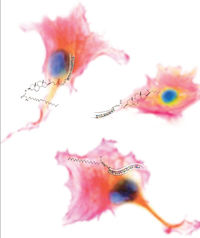Genzyme and Isis Begin Second Phase 3 Trial of Mipomersen
Broad New Patent Granted
Advertisement
Genzyme Corp. and Isis Pharmaceuticals, Inc. announced that they have begun a phase 3 study of mipomersen in patients with heterozygous familial hypercholesterolemia (heFH), a genetic disorder that causes exceptionally high levels of LDL cholesterol. It is the first of four new trials the companies plan to initiate by the end of this year, and the second late-stage study of mipomersen, a novel lipid-lowering drug that utilizes antisense technology.
The companies also announced that the United States Patent and Trademark Office granted the patent entitled "Antisense Modulation of Apolipoprotein B (apoB) Expression," U.S. Patent No. 7,407,943. The patent broadly covers the use of antisense compounds targeting the apoB messenger RNA except a ribozyme.
"We are making excellent progress in implementing our comprehensive development plan for mipomersen," stated John P. Butler, president of Genzyme's renal, endocrine and cardiovascular business units. "The start of the heFH study puts us on track to meet our goal of beginning four new mipomersen studies this year. In addition, the recent patent issuance increases the overall value of mipomersen, which we believe has enormous potential to help patients."
The new trial will evaluate the safety and efficacy of mipomersen in patients who have heFH and coronary artery disease. It is a randomized, double-blind, placebo-controlled study taking place at approximately 30 sites in the U.S. and Canada, with an anticipated total enrollment of around 100 patients. Patients on a stable dose of other lipid-lowering agents are being randomized 2:1 to receive a 200 mg dose of mipomersen or placebo weekly for 26 weeks. The primary endpoint will be percent reduction in LDL cholesterol, and data are expected to be available in 2010. The trial will add to the body of clinical data on mipomersen and the overall product profile.























































